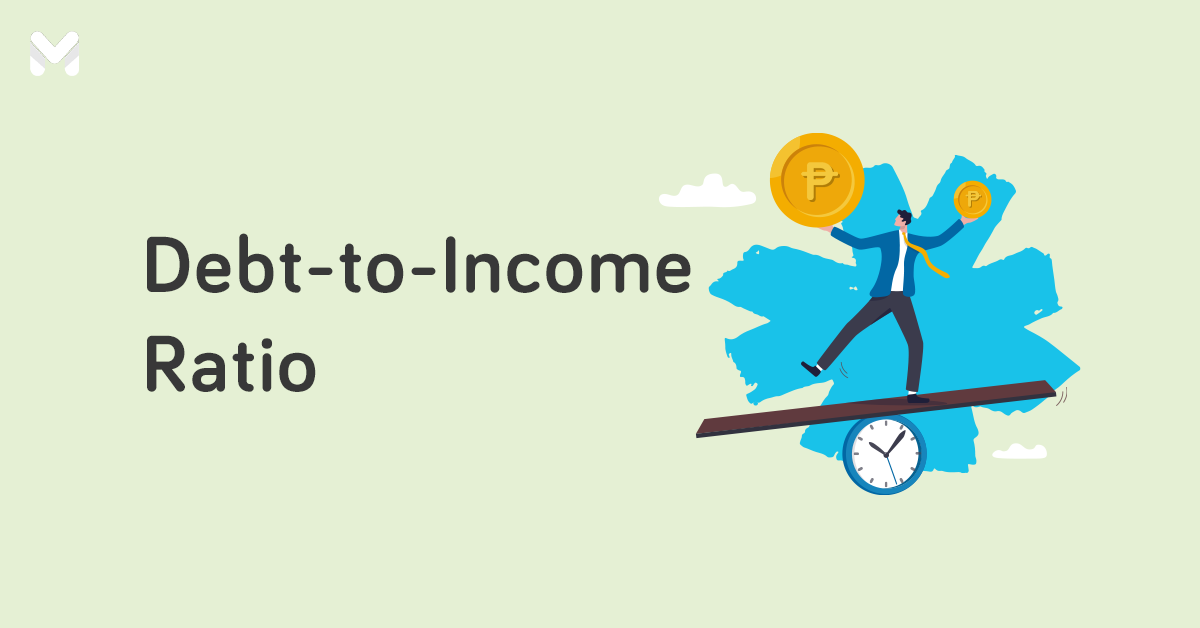An old saying goes that nothing is certain except death and taxes, both components of a functioning society. However, talking about taxes is just natural while discussing death is considered taboo.
Yes, death is a very touchy subject. But now’s the time to change how you view it. If you keep sidetracking this subject, you won’t be able to plan for it properly, thus leading to some problems that may disrupt your family should you or a loved one pass away.
The best time to plan for your funeral is any time—except at the time of your wake, of course! But ideally, you must plan for it as early as possible while you have the strength to earn enough money.
You need to have an idea about the cost of a funeral in the Philippines so that you and your family can plan things properly. We’ve got you covered. Here are some things you may want to take note of.
Disclaimer: Prices stated in this article are just rough estimates. If you want to get specific prices, we recommend that you visit the website of your prospective provider or get in touch with its authorized representative.
Cost of Treating Terminal Illnesses

Usually, death is not a sudden event. Sometimes it’s a gradual process that starts with a terminal disease. With that in mind, it would only be wise to start the cost calculation with the expenses that come with a terminal illness.
In the Philippines, the leading causes of mortality include heart disease, vascular disease, and cancer. But how much does it cost to deal with these diseases?
⚕️ Stroke-Related Costs
- Hospitalization cost: Between ₱17,000+ and ₱95,000+ (public hospital)
- Surgery cost: Up to ₱600,000; may exceed depending on the patient’s needs
A stroke happens when there’s a blockage in the blood vessel of the brain or when the said blood vessel ruptures, which then results in the reduction of blood supply flowing to the brain.
⚕️ Heart Attack-Related Costs
- Medical treatment: Between ₱60,000+ and ₱90,000
- Medical treatment with angioplasty: Between ₱260,000+ and ₱425,000
A heart attack happens when the flow of blood to the heart is blocked, usually due to a build-up of fat or cholesterol build-up in the arteries.[1]
⚕️ Lung Cancer-Related Costs
Medical treatment: Between ₱120,000 and ₱1 million
Cancer occurs when cells divide uncontrollably. With lung cancer, it means that the cells in the lungs are dividing abnormally. There’s also a risk that the cancer cells may spread to other parts of the body.
Cost of a Funeral in the Philippines: Expense Breakdown
-Oct-27-2023-02-24-44-8169-PM.png?width=600&height=400&name=Pics%20for%20blog%20-%20600x400%20(1)-Oct-27-2023-02-24-44-8169-PM.png)
Funerals usually take three to seven days. The longer a funeral is held, the more expensive it gets. The following funeral essentials are among the things that you can factor into the cost of dying in the Philippines:
💸 Casket: ₱40,000+ to ₱60,000+ (wooden) / ₱80,000+ to ₱100,000+ (metal)
Caskets are usually expensive, as they’re designed to weather different underground conditions and properly protect the deceased person’s body. The price of a casket heavily depends on its material.
Wooden caskets may cost around ₱40,000 and up. If you’re looking for a simple, no-frills design, it’s possible to find more affordable options. The more expensive ones may be built using a special kind of wood.
Metal caskets, on the other hand, may cost between ₱80,000 and ₱100,000. Some caskets are expensive because they're constructed with imported metals and other materials.
💸 Clothing: ₱1,000 - ₱5,000
You may also need to spend on the deceased person's clothing. The price will largely depend on the style and material of the clothes. For instance, barong gowns and shirts may cost anywhere between ₱1,000 and ₱5,000.
💸 Memorial Chapel Rental: ₱15,000 and Up per Night
While many wakes are held at home, some families prefer to hold the ceremony at a memorial chapel, so they can easily accommodate more people. Some families who live quite far away may also choose this option to make the funeral more accessible to relatives and friends.
Usually, the venue is included in the memorial package. Otherwise, you may shell out around ₱15,000 per night. Bigger venues come with higher price tags.
💸 Funeral Ceremony: ₱8,000 - ₱500,0000
Mortuary services are also included in the memorial package. But in case they’re not, you'll need to take care of a couple of things, such as the viewing set-up, flowers, and lamps.
Modest funeral ceremonies may cost from ₱8,000 to ₱20,000. Mid-range funeral services may set you back up to ₱300,000. High-end mortuary service packages, on the other hand, may reach up to ₱500,000 and more.
💸 Food and Refreshments: ₱15,000 - ₱35,000
You'll have visitors coming to the wake, and a few of them may even stay the night. With that, you’ll need to offer them some food and drinks. Your budget for this will depend on the expected number of guests and the duration of the funeral.
It would be safe to set aside between ₱15,000 to ₱35,000 for this. The cost of a funeral in the Philippines will either go up or down, depending on the kind of refreshments you'll serve and how many times in a day you’re going to serve them.
Read more:
- How to Budget Money: Your Guide to Making a Personal Budget Plan
- Sample Family Budget in the Philippines: Managing Household Finances
Cost of Burials in the Philippines
-Oct-27-2023-02-26-54-6013-PM.png?width=600&height=400&name=Pics%20for%20blog%20-%20600x400%20(2)-Oct-27-2023-02-26-54-6013-PM.png)
Burial costs typically revolve around these two factors: the memorial lot and burial-related services. So how much is a burial in the Philippines? Here are the common expenses:
💸 Memorial Lot: ₱3,000 - ₱10 million+
Apartment tombs may cost between ₱3,000 and ₱5,000. But for the poorest of the poor,[2] some charities and organizations may offer burial assistance.
Prices of private lots may reach up to ₱100,000. More expensive options, such as a mausoleum, may have a starting price of ₱1 million. Other upscale options, such as a garden or estate lot, may be priced beyond ₱10 million.
💸 Burial-Related Services: Up to ₱50,000
These funeral services include transportation and security. You may prepare up to ₱50,000 for this alone. Excavation of the lawn lot also comes with a price, which is usually between ₱15,000 and ₱40,000.
There are also miscellaneous expenses, such as burial registration, which may cost between ₱150 and ₱500.
What is the Price of Cremation in the Philippines?
While cremation may be a cheaper alternative to burial, it still comes with a hefty price tag. Prices of cremation in the Philippines start at around ₱70,000 and may reach up to ₱100,000. Powder-fine cremation may cost around ₱150,000.
When it comes to urns, you may find options online that are priced between ₱2,500 and ₱17,000. The cheaper ones are usually made of marble. If you want to honor your loved one in the grandest way possible, some urns are priced at ₱100,000 and up.
Meanwhile, a columbarium in the Philippines may be priced from ₱60,000 to ₱300,000.
8 Tips for Planning a Funeral
-Oct-27-2023-02-29-34-1534-PM.png?width=674&height=449&name=Pics%20for%20blog%20-%20600x400%20(3)-Oct-27-2023-02-29-34-1534-PM.png)
Without a doubt, funerals can be expensive. But you can minimize the cost by planning ahead. If you do this, you’re reducing the burden your family will have to endure should you pass on.
Here are some things to keep in mind.
👉 Get Health and Life Insurance
Health problems don’t always lead to death, but they can drain your wallet. As such, it pays that you have health insurance.
Depending on your policy, it may cover medical, surgical, and even dental expenses. This is also one of your best bets for dealing with critical illnesses.
Other than having health insurance to your name, you must also get life insurance. This is a type of policy that pays your family a sum of money when you pass away.
It will provide your loved ones support when it comes to dealing with the cost of your funeral. In some cases, the beneficiaries use the money for other purposes, such as education, renovation, and savings.
Before purchasing insurance, here are some of the factors you need to consider:
- Your budget – Policies with all the bells and whistles come with a high price tag. If you can’t afford one at the moment, it’s okay to settle for a basic option. Usually, agents work around their client’s budget before drafting a proposal.
- Number of dependents – Health and life insurance both provide benefits to your dependents. If you have a lot of loved ones depending on you, consider a comprehensive plan with a large payout.
- Risk – What are the risks that you face every day? Does your livelihood endanger your health? What’s your current health condition? All these factors may affect your premium.
- Age – The older you get, the more health risks you face. With that, older people tend to pay higher premiums. Get insurance while you’re young so you can avail of a policy at a more affordable price.
👉 Get Travel Insurance
Getting travel insurance may appear like it has nothing to do with the cost of dying in the Philippines. But it does!
Consider this. You’re traveling abroad, and you happen to perish there. Repatriation of your remains is expensive. For instance, if your remains are to be flown from the United Kingdom to the Philippines, your family will have to pay more than £3,000 or around ₱200,000.
On the other hand, travel insurance can also cover medical expenses due to an accident or illness. It can also help you deal with medical evacuation expenses.
If you have the budget to include a compassionate visit in your coverage, a family member can travel to your destination so they can stay with you and take care of you. The insurer will cover the expenses incurred.
👉 Estimate Your Funeral Costs
Since you’re already reading this guide to the cost of a funeral in the Philippines, you can start with a base price and work your way around it. For this to work, list all the things that you'll possibly need, from the casket to the lot.
Don’t feel pressured to take care of all these things in one go, unless you have the money. You can start ticking off one thing at a time. We recommend that you go for the basic ones first.
For instance, your goal for this year may be to secure a lot and buy a casket. Then the following year, you can start thinking about the rest of the list.
Read more:
👉 Consider Getting a Memorial Plan in the Philippines
Pre-need funeral plans can help reduce the financial shock that your family may experience in case you pass away. Usually, packages cover the casket, memorial services, and the chapel.
Here are some of the benefits of getting a memorial plan:
- Peace of mind – A death in the family is stressful enough. Having covered the possible expenses of your funeral can give your loved ones some peace of mind.
- Some plans are transferrable – A lot of memorial companies allow clients to transfer their plans to their living loved ones.
- Value-added benefits – Some memorial plans carry extra features, such as accidental death and dismemberment benefits and even credit life insurance.
- Discounts – Spot cash payments sometimes come with an exclusive discount.
If you’re looking for a memorial plan in the Philippines, here are a few options to consider:
- St. Peter Memorial Plans Philippines
- PhilPlans Memorial Plans Philippines
- Loyola Memorial Plans Philippines
- Paz Memorial Plan Package
- Freedom Life Memorial Plan Philippines
How much is a memorial plan in the Philippines? It usually ranges from ₱600 to ₱3,000 per month. You can avail of a memorial plan via an agent.
👉 Share Your Plan With Your Family
Some people feel too embarrassed to bring up funeral preparations in a conversation. But it’s better to be transparent at this point, as your family may be able to help you out. Who knows, your parents may recommend a reliable memorial plan agent that offers affordable packages.
If you and your family are open about it, you can discuss each other's preferences regarding funerals. Here are some of the things you should tackle:
- Your choice between burial or cremation
- Your choice of cemetery (if you opt to be cremated, state where you want your remains to rest)
- Your choice of church
- Your choice between viewing or memorial service
- Your choice of venue for your wake (home, chapel, or a place that’s significant to you)
- Your preferred casket (including the material, color, and details)
- Your headstone (including the quote you want in it)
- Your choice of prayers, readings, or eulogies?
- The guests (inform your family about friends or colleagues they might not know about)
- Other special requests
👉 Write a Will
-Oct-27-2023-02-31-00-0827-PM.png?width=674&height=449&name=Pics%20for%20blog%20-%20600x400%20(4)-Oct-27-2023-02-31-00-0827-PM.png)
Writing a will is usually associated with rich families. However, it’s actually for anyone who wants to make sure that their affairs will be in order in case they pass away. It’ll also prevent confusion and conflicts among family members when it comes to taking care of your funeral or dividing your assets.
👉 Organize Important Documents
Alongside your will, it’s wise to organize all your personal documents. That way, your family can access them even after you’re gone.
But don’t just stop at legal catalogs. Include other documents that may serve as your legacy, such as old photos, letters, certificates, and more. These seemingly simple items will become your family’s important treasures after you’re gone.
Read more: Estate Planning: Why It’s Important and How to Get Started
👉 Organize Your Digital Assets
Since you’re living a digital life, it only makes sense to organize your digital assets. Here are some of the things that you need to do:
- List down all your digital assets – These include your laptops and desktop computers, tablets, flash drives, external hard drives, cameras, and memory cards. They also include any data stored online, like your cloud storage, social media accounts, online shopping accounts, and more.
- Plan what you want to do with those assets – Answer these questions: What do you want to do with your digital assets after you’re gone? Do you want them to be disposed of? Or do you want some of them to be collated and stored in one place for future use?
- If possible, include your plans in your will – In your will, you should assign an executioner of your digital estate. Ask your lawyer about this.
- Share specific instructions – Your lawyer and your executor will need to have access to your digital assets. Walk them through the process so they won’t have any problems later on.
Final Thoughts
Death may be a touchy subject, and just hearing about it may make you anxious and uncomfortable. However, now’s the time to be more open about it since no one can live forever. Once you’ve accepted this reality wholeheartedly, you'll gain a deeper appreciation for life.
Won't it be good to have everything prepared for when that time comes? The loved ones you'll leave behind won't have to worry about where to get money for your funeral and burial or cremation. This guide to the cost of a funeral in the Philippines should give you a head start on preparing financially for death-related expenses.
But in case you lost a loved one recently yourself and need extra cash for funeral expenses, you can avail of a personal loan. Compare loans and find the best one through Moneymax.
Sources:
- [1] Heart Attack (Mayo Clinic)
- [2] Free, Discounted Funeral Services for Poor Pinoys Sought (Philippine Daily Inquirer, 2022)
- [3] What Is a Will, What Does It Cover, and Why Do I Need One? (Investopedia, 2023)







_1200x350.png?width=1200&height=350&name=Travel_Insurance_Generic_(Oct_2023)_1200x350.png)



